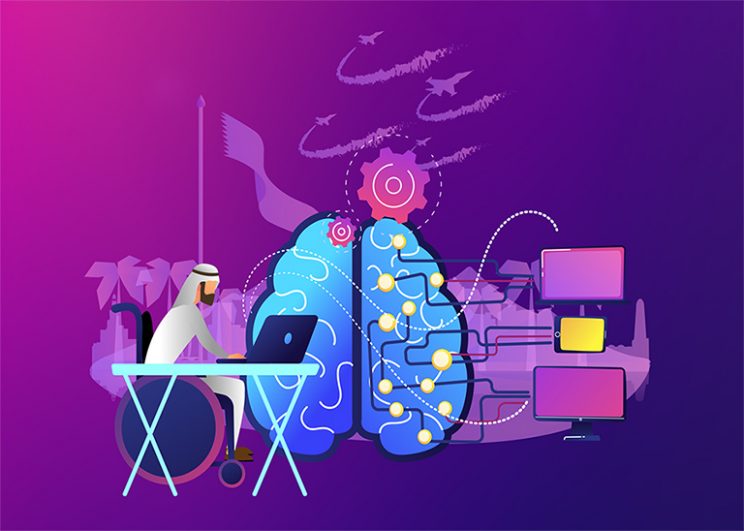Artificial Intelligence & Accessibility
ورقة علمية  وصول مفتوح |
متاح بتاريخ:25 أكتوبر, 2019 |
آخر تعديل:28 أكتوبر, 2019
وصول مفتوح |
متاح بتاريخ:25 أكتوبر, 2019 |
آخر تعديل:28 أكتوبر, 2019
 Increasingly, Artificial Intelligence (AI) research is consistent and continues to advance. Artificial Intelligence represents machine capabilities that, in the past, would have only been possible through human intelligence. Since this definition is subjective, artificial intelligence may change as the expectations of computers evolve. Regardless, AI is being used more widely in different applications across multiple setting and industries. In the coming years, Artificial Intelligence will be at the forefront of efforts to improve the lives of people with disabilities.
Increasingly, Artificial Intelligence (AI) research is consistent and continues to advance. Artificial Intelligence represents machine capabilities that, in the past, would have only been possible through human intelligence. Since this definition is subjective, artificial intelligence may change as the expectations of computers evolve. Regardless, AI is being used more widely in different applications across multiple setting and industries. In the coming years, Artificial Intelligence will be at the forefront of efforts to improve the lives of people with disabilities.
At Mada, we know that disability comes in different shapes and people with disabilities have different types of needs. It is not a simple theory with a small number of possible values. It has many dimensions, varies in intensity and impact, and often changes over time. As a result, Mada is constantly supporting innovative and emerging technologies such as AI technologies through The Mada Innovation Ecosystem. Artificial Intelligent assistants for people with disabilities provides powerful tools to navigate the world and play a role in all the activities of daily life. It can help solve a wide range of general accessibility, safety & privacy, inclusiveness, communication, employment and transportation problems.
- AI advances in areas such as predictive text, speech-to-text transcription, and voice and visual recognition can assist employees or potential employees with disabilities.
- Increased mobility with a self-driving car that will increase the movement of people with physical disabilities significantly.
- AI can help people with hearing disabilities by providing augmented text, voice interpretation and sign language support.
- AI systems can learn from people’s regular activity to detect falls or proactively alarming caretakers before a situation becomes an emergency.
- AI offers better navigation systems for people with visual impairments.
- AI voice assistants help people with disabilities to live independently and with improved safety, especially when they are paired with smart home solutions.
- People with physical disabilities and mental health conditions have access to predictive tools, virtual assistants, and therapeutic chatbots and robots.
- AI technology such as voice interaction, image recognition and real-time captioning is starting to break down barriers for people with sensory, physical and cognitive disabilities.
- The use of AI benefits employees with not only disabilities but also employers and workplaces, forming a more diverse and inclusive workplace.
- AI for accessible technologies is serving teachers and tutors to test and identify learning disabilities. With machine learning, tailored tutoring and study plans, AI can help students fraught with basic ideas or who need a more personalized approach to make sure they do not fall behind in the classroom.
Artificial Intelligence is rapidly growing more useful by the day. An ever-increasing number are people are viewing these technologies, not as a luxury item but, as a tool that can increase productivity or release some untapped potential. AI assistants, like Amazon Alexa, Microsoft Cortana, Google Assistant, and Apple’s Siri, are demonstrating to be life-enhancing for those including a variety of disabilities.
Systems with the capability to learn languages and cultures is making it easy for AI implementation in different parts of the world including the Arabic language region. Companies and organizations are continuing to invest in improving AI for a better, more inclusive society.
Regardless of the outcome, it is without a doubt that AI is changing the world we live in, particularly for people with disabilities.
